Methanol (Laboratory Use)
$40.65
How Does ReAgent Supply Methanol for Laboratory Use?
- We supply methanol for laboratory use in 2.5L containers, with discounts available for bulk orders
- This product is sold with a minimum 99.5% purity levels and less than 0.1% aldehydes and ketones; 0.005% non-volatile matter and 0.25% water (see further information in the Sales Product Specification, available to download from our website)
How is Methanol Made?
There are several possible methods to produce methanol:
- From synthesis gas: In the presence of a catalyst, hydrogen and carbon monoxide can react to produce methanol. Common catalysts include copper, zinc oxide and alumina. The reaction is performed at high pressure (50-100atm) and high temperatures (250 degree Celsius)
- From methane: Conversion of methane to methanol is possible via an oxidation reaction in the presence of copper and other catalysts. However, this method has several limitations still to be solved, including the lifetime of the catalysts and affordable reactants to react with methane
- From carbon dioxide: Methanol can be synthesised directly from carbon dioxide in a solution containing cuprous and copper oxide (Cu2O and CuO, respectively) under the direct action of sunlight. This method is still under development, but with a potential efficiency of 95%, many researchers believe it will soon become the preferred industrial method
How to Control Exposure to Methanol
As a toxic compound, it’s essential to have systems designed to control exposure to this compound:
- Provide appropriate ventilation, including extraction fume cupboard if needed
- Ensure workplace exposure limit (WEL) is not exceeded
- Wear suitable protective equipment, which may include respiratory equipment when vapours are produced in case of insufficient ventilation
- Gloves must be changed in regular intervals, before they start showing signs of degradation
- When cleaning spillages, staff must wear protective anti-static footwear
- Change clothes in case of contamination
How Does ReAgent Supply Methanol for Laboratory Use?
- We supply methanol for laboratory use in 2.5L containers, with discounts available for bulk orders
- This product is sold with a minimum 99.5% purity levels and less than 0.1% aldehydes and ketones; 0.005% non-volatile matter and 0.25% water (see further information in the Sales Product Specification, available to download from our website)
How is Methanol Made?
There are several possible methods to produce methanol:
- From synthesis gas: In the presence of a catalyst, hydrogen and carbon monoxide can react to produce methanol. Common catalysts include copper, zinc oxide and alumina. The reaction is performed at high pressure (50-100atm) and high temperatures (250 degree Celsius)
- From methane: Conversion of methane to methanol is possible via an oxidation reaction in the presence of copper and other catalysts. However, this method has several limitations still to be solved, including the lifetime of the catalysts and affordable reactants to react with methane
- From carbon dioxide: Methanol can be synthesised directly from carbon dioxide in a solution containing cuprous and copper oxide (Cu2O and CuO, respectively) under the direct action of sunlight. This method is still under development, but with a potential efficiency of 95%, many researchers believe it will soon become the preferred industrial method
How to Control Exposure to Methanol
As a toxic compound, it’s essential to have systems designed to control exposure to this compound:
- Provide appropriate ventilation, including extraction fume cupboard if needed
- Ensure workplace exposure limit (WEL) is not exceeded
- Wear suitable protective equipment, which may include respiratory equipment when vapours are produced in case of insufficient ventilation
- Gloves must be changed in regular intervals, before they start showing signs of degradation
- When cleaning spillages, staff must wear protective anti-static footwear
- Change clothes in case of contamination

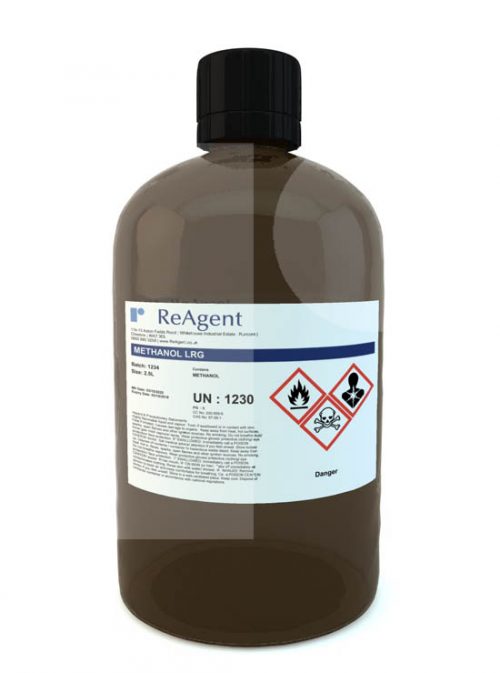
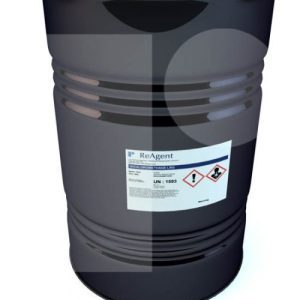
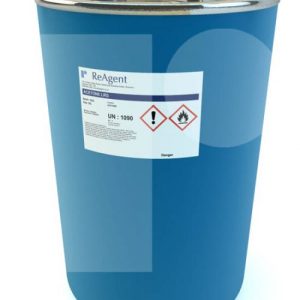
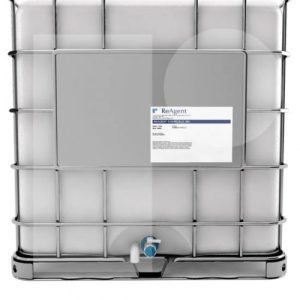
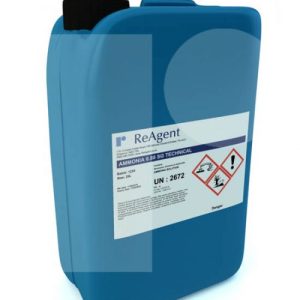
There are no reviews yet.